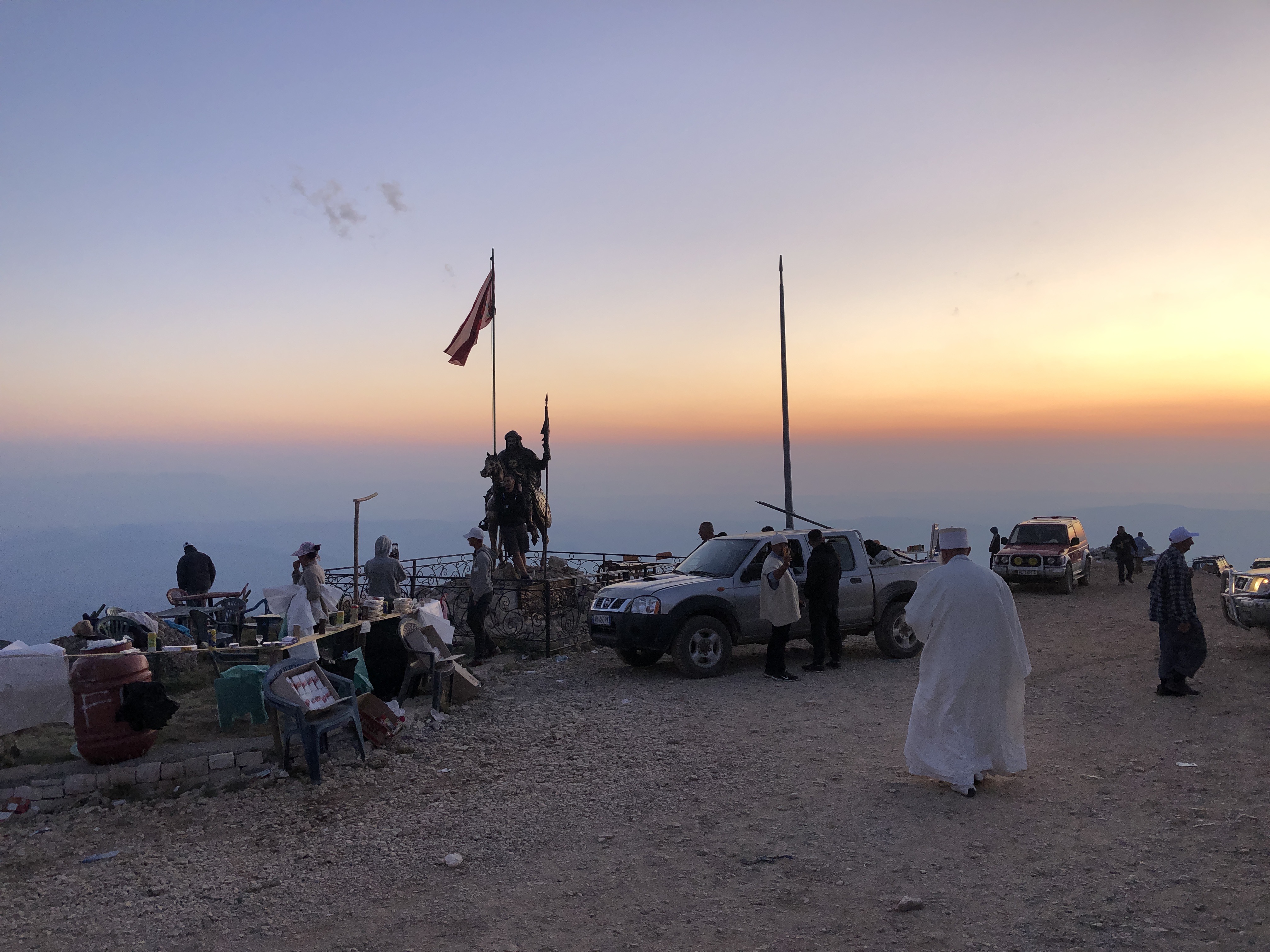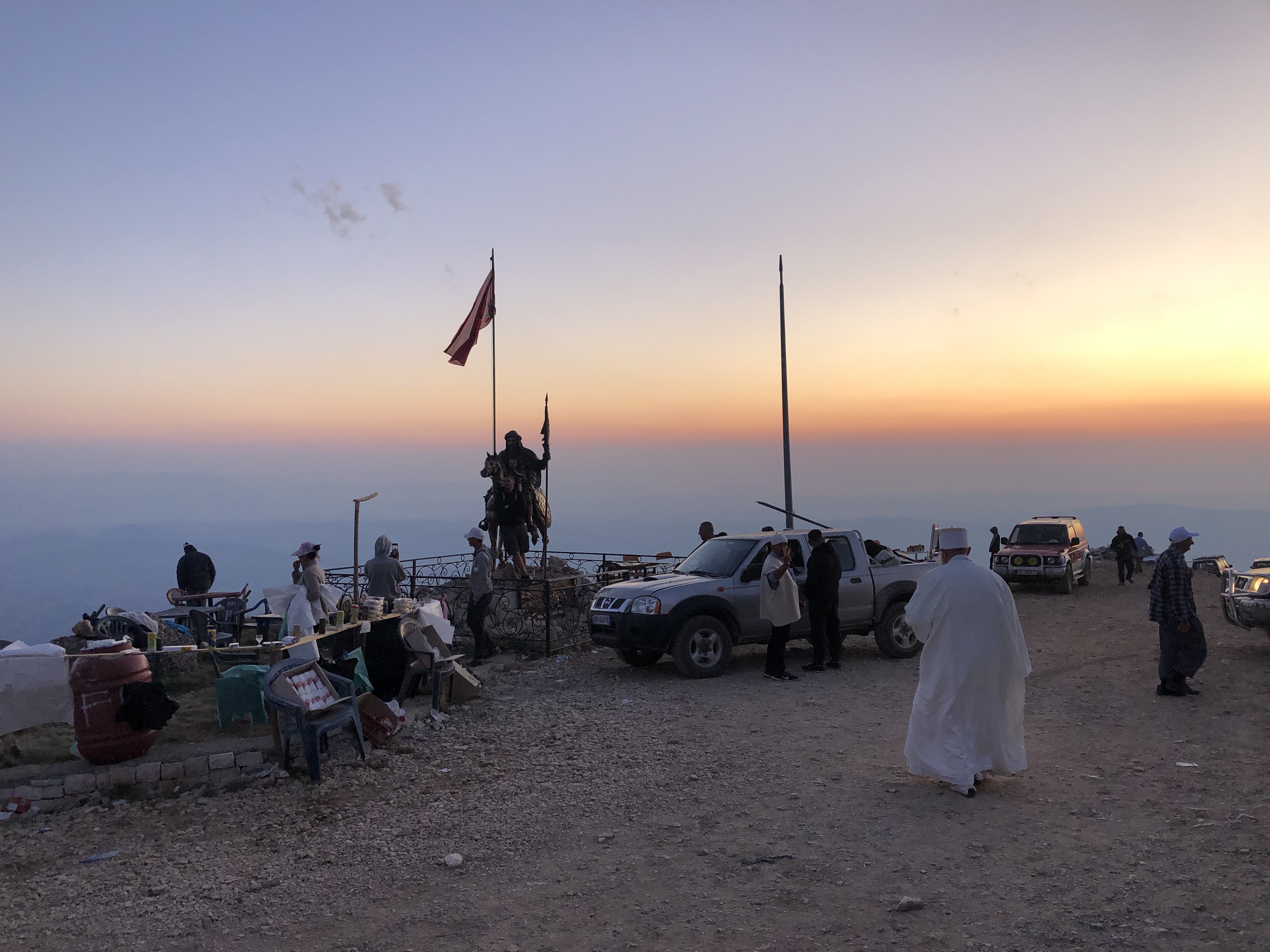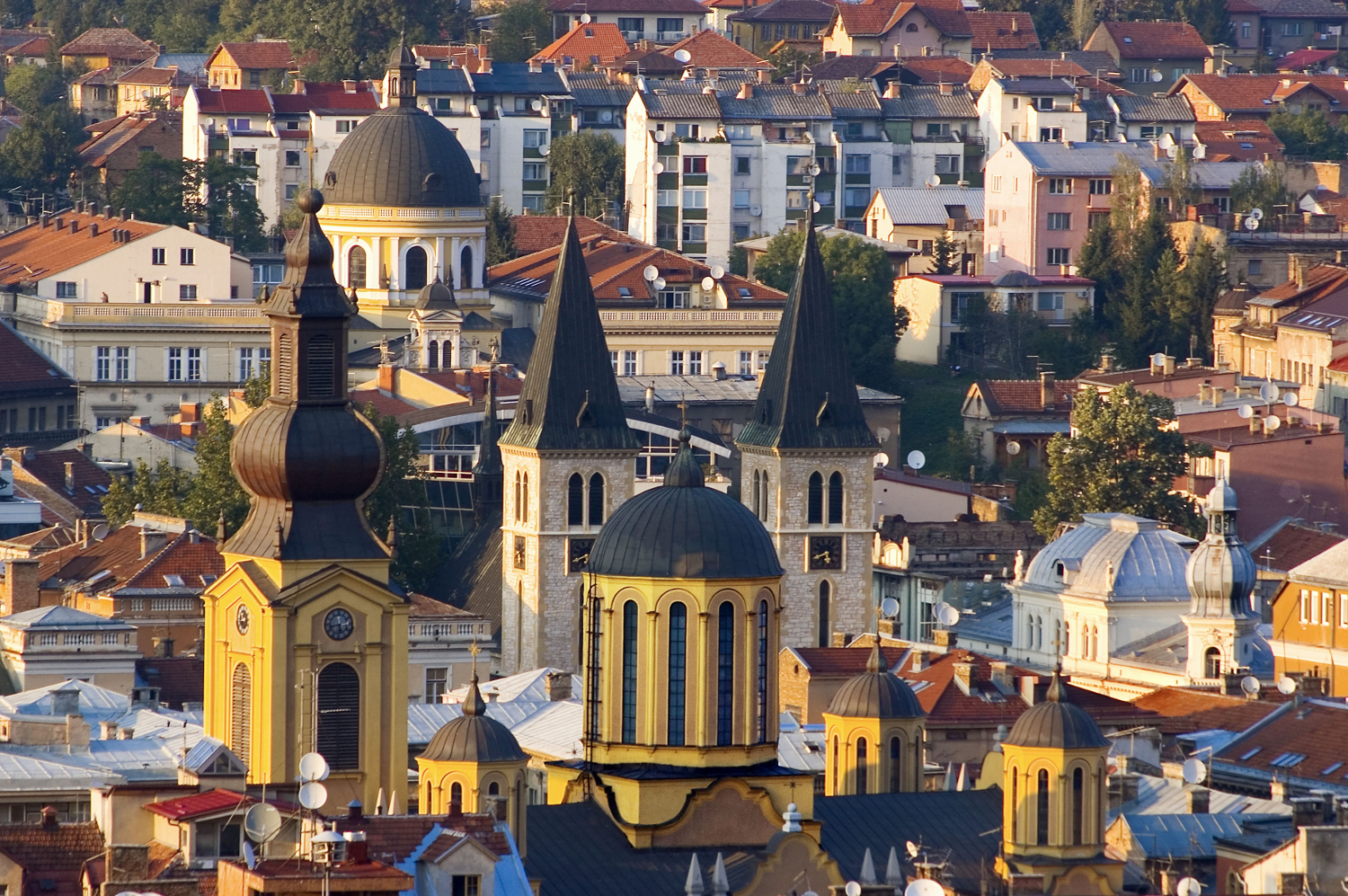
The Bektashi, a Su order in the Balkans, have a joke. A Bektashi man is praying at a mosque. While others pray for grace and faith, he prays for plenty of wine. The imam hears him and rebukes him for asking god for something sinful. The Bektashi replies, "Well, everyone asks for what they don't have."
Atop Albania's Mount Tomorr last summer, I contemplated buying a bottle of wine labelled with the face of the early Muslim martyr Abbas ibn Ali. The bottle, which cost 700 lek—around four hundred and fifty rupees—seemed, to me, an incredible provocation, collapsing the sacred and the profane. It was late August, around 1 am on the second night of the annual Bektashi pilgrimage up the mountain. Almost two thousand metres above sea level, in a pop-up pilgrimage town strewn with makeshift sheds, groups of Albanians were dancing. Clusters of memorial candles that had been lit earlier in the night glowed in the distance.
The Bektashi Order—named after Haji Bektash Veli, a thirteenth-century imam from what is today Iran—was consolidated in the fifteenth century in the Ottoman Empire, spreading through its territories, including Albania. After the empire's collapse, Mustafa Kemal Atatürk, the new secular president of Turkey, shut down the country's Su orders, in 1925. The Bektashi shifted base to Tirana, the capital of Albania. Trouble followed them there: in 1967, Albania's communist government banned all religions, creating the world's rst atheist state. It was only after 1990 that the Bektashi Order was once again allowed to worship openly in the country. Its clerics reopened the Bektashi World Centre at Tirana, in 1992, and started the modern Tomorr pilgrimage three years later.
The order has absorbed Shia, Sufi, Christian, animist and ancient Turkic elements, and has few behavioural prohibitions or prescriptions. Many members of the Bektashi I spoke to said that they were representatives of a "European Islam." "We drink wine; we don't separate men and women; we don't even pray!" Arben Sulejmani, the order's head of foreign affairs, who had invited me to accompany his family to Tomorr, told me. I asked him whether the Bektashi were Shia. No, he said, but they revere the 12 Shia imams, love the prophet Muhammad's son-in-law, Ali, and mourn his death at the ninth-century Battle of Karbala. Sulejmani told me that the Bektashi fast during the month of Muharram, eating only vegan food and drinking only plum juice. They do not maintain mosques, but have shrines and modest tekkes—dervish lodges. Despite their devotion to Ali, they also speak of a "holy trinity" of Allah, Muhammad and Ali. The vast majority of Albanian Bektashi do not pray and consider the Tomorr pilgrimage primarily a fun social event.
A distinctive Albanian Bektashism came together in the nineteenth century, overlapping with the contemporary nationalist movement in Albania. When the communists took over, after the Second World War, the Bektashi were so rooted in Albanian society that they were the only religious group to initially be spared state repression. But Albania's paranoid dictator, Enver Hoxha, eventually decided no religion was worth the risk to his regime, and the Bektashi too were driven underground. Today, the Bektashi comprise only about two percent of the population. The majority of the population is Sunni, Albanian Orthodox or Roman Catholic. Atheists, too, constitute a sizeable minority.
The growing pains of a resurgent tradition were apparent on the road to Mount Tomorr. Many pilgrims had driven their high-end sedans up the mountain and abandoned them at the roadside as they inevitably sputtered out. When we arrived at Tomorr's tekke, our rst stop was the bar. Zalo Qato, the tekke's owner, poured us pints of lager. We toasted in the Bektashi manner, silently touching knuckles rather than clinking glasses. People were already hanging out on the veranda, under umbrellas branded with brewery logos. Outside, hundreds of people were setting up tents, barbecuing and, well, chilling. It was like a music festival.
After an hour of drinking, Sulejmani looked up from his phone and told me, "The Baba wants to see you." Edmond Brahimaj, the patriarch of the order—known as Baba Mondi, or Father of the World, he traces his lineage all the way back to Bektash —received us in a sitting room lined with furry rugs and portraits of Ali. He was dressed in a style I can only call dodecahedral: all his accessories came in twelves, to evoke the 12 imams. He wore a pinstripe robe and green cap, with six ball-shaped charms hanging o either side of his vest and a weighty 12-sided jade pendant on his neck.
"You know, Lord Byron came to Albania," Brahimaj told me, by way of introduction. The British poet had indeed visited the country, during an 1809 tour of the Mediterranean—in a t of Orientalist fantasy, he called Albania a "rugged nurse of savage men." Perhaps conscious of the pilgrimage's recent vintage, Brahimaj told me of other illustrious visitors. "Zeus lived on Tomorr, too," he said. "This was the real site of the Olympics." I wanted to press him for details, but a long line of visitors were waiting outside, and he soon sent us off, putting fistfuls of hard candy in my palms as a parting gift.
From the porch, I saw men and boys coming down to the lodge, holding slaughtered lambs in bloody white tarps. They had lamb's blood on their foreheads, like tilaks. They skinned the lambs, tagged them with their names and roasted them on massive spits that turned all day and night. At the little restaurant in the tekke, pilgrims dined round the clock on huge cuts of meat, accompanied by bread, soup, tomatoes and cottage cheese.
The slaughter of lambs, which Sulejmani called "the quintessence of Abrahamic religion," was one of the few actual rituals I saw on the mountain. As to what the pilgrimage was commemorating, there is no conclusive answer. According to one legend, Ali came to Tomorr from Karbala on his flying white horse to bring Islam to Albania. Another story holds that Bektash, having noted that pagans often performed rituals on mountains, interred a handful of dirt from Ali's tomb in Karbala on the top of Mount Tomorr to Islamicise a pre-existing rite.
One effect of the growing use of cars to make the pilgrimage is that pilgrims tend to stop at the tekke and not make it all the way to the mountaintop shrine to Ali, which is situated seven hundred metres higher. After meeting Brahimaj, we decided to trek onwards to the 12-sided shrine with a bright-green dome. Above a large statue of Ali, built recently by members of the Albanian diaspora, a banner read, "Welcome, Slaves of Hussein!" The pilgrims kissed the shrine's steps and left offerings: blankets, Ajax detergent, biscuits. A plaque on the shrine had a verse by Albania's national poet, Naim Frasheri, who was a Bektashi: "Because Abbas Ali came here from Karbala, Albania is not without hope."
When we returned to the tekke, it was completely dark. A band performed live music under floodlights, and a huge crowd danced, in interlocking circles. Every hour or so, when the generators switched off, you could see the Milky Way overhead. "Our religion is fun, don't you think?" Valentina, a 19-year-old pilgrim at the edge of the dancing crowd, asked me. Her elder sister was smoking nearby. Her mother reached into her purse and gave me some fresh walnuts, and a plastic water bottle of rakija— Balkan moonshine—to wash them down.
The following morning, the party atmosphere had given way to the solemnity of bureaucracy. Ilir Meta, the president of Albania and a Bektashi, had come up, along with senior government offcials and a politician from the main Turkish opposition party. There were folk dances and many speeches. The Albanian government's State Committee on Cults monetarily supports the country's four major religions, which is helping the Bektashi Order to grow, and to formalise. "We are starting from scratch," Brahimaj had told me.
Back at the tekke restaurant, pilgrims dealt with their hangovers by gnawing at cold racks of lamb. A middle-aged woman sang nefes—devotional songs—as she poured out shots of rakija for the group. Everyone knew the songs, though even humming them under the Hoxha regime could have meant imprisonment, or worse. I remembered something else Brahimaj told me. "In other places, religion is like a museum," he had said. "Here it's still alive."

Education Resource
Meet the Journalist: Krithika Varagur
This project by Krithika Varagur examines the modern political context of and foreign influences on...





